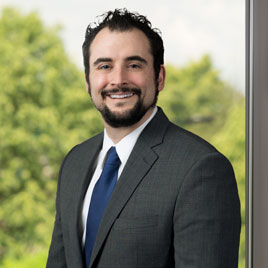Introduction
The Michigan Court of Appeals has ruled in a published opinion that a claimant, who has assigned their right to collect No-Fault Fault Personal Injury Protection/Personal Protection Insurance (“PIP) benefits, cannot claim those benefits in their own lawsuit seeking recovery from a No-Fault insurer. See Farrar v. Suburban Mobility Auth. for Reg’l Transp. Docket No. 358872, 2023 Mich. App. Lexis 922 (2023). Rather, the assignee, typically a medical provider, becomes the real party in interest and the only party that can sue for said benefits.
What does it mean to be a Real Party in Interest?
The real party in interest doctrine recognizes that litigation should be initiated by one who has a vested right of action on a claim. It protects a defendant from having to defend a multiplicity of lawsuits for the same cause of action by recognizing that the real party in interest is one that will assure sincere and vigorous advocacy.
The Farrar v. Suburban Mobility Auth. For Reg’l Transp. Decision
On February 13, 2019, Marcel Farrar was riding as a passenger on a bus operated by Suburban Mobility Auth. For Reg’l Transp. (“SMART”) when the bus was hit by another car. As a result of the accident, Farrar claimed injury and sought medical treatment from a number of medical providers and executed assignments of benefits in exchange for the treatment. Farrar executed assignments to Focus Imaging, LLC, C-Spine Ortho, Allied Medical, Assure Neuromonitoring, and Integra Lab Solutions.
On February 11, 2020, Farrar filed a lawsuit seeking recovery for PIP benefits from SMART under pre-No-Fault amendment MCL 500.3114 for his treatment related to his alleged injuries to his back, head, arms, legs, and shoulders. Focus Imaging subsequently sought to intervene into the lawsuit on February 11, 2021. SMART filed a motion for partial summary disposition seeking dismissal of Farrar’s claim for benefits of services from the aforementioned providers based on the assignments that Farrar executed with them arguing that Farrar was no longer the real party in interest for those services after executing the assignments. SMART also sought dismissal of Focus Imaging’s claim based on the pre-No-Fault amendment one year back rule. The trial court denied SMART’s motions and rejected SMART’s arguments. The trial court did not find that the execution of assignments barred Farrar from claiming those services in his own lawsuit and found that Focus Imaging could relate its claim back to the date of filing of Farrar’s complaint.
SMART appealed and the Michigan Court of Appeals reversed the lower court’s ruling finding that once Farrar executed assignments with C-Spine Ortho, Allied Medical, Assure Neuromonitoring, and Integra Lab Solutions that he was no longer the real party in interest as to those services. The Court found that upon execution of the assignments, the providers became the real parties in interest for the benefits and only they could sue to recover those benefits and thus, Farrar did not have standing to sue to recover the benefits associated with those providers.
Likewise, the Michigan Court of Appeals reversed the lower court’s ruling on the motion pertaining to Focus Imaging’s claim holding that the lower court disregarded long established Michigan case law that the relation back doctrine under MCR 2.118 does not apply to new parties. The Court of Appeals noted that Focus Imaging is a different party seeking the same claims as Farrar. The Court of Appeals then held that Focus’s claim was barred based on the pre-No-Fault amendment one-year-back rule.
The Implication of this Decision going Forward
This Michigan Court of Appeals opinion makes clear that when an assignment is executed by a No-Fault claimant they are no longer the real party in interest and have no standing to sue for those benefits. Further, while Farrar addresses the pre-No-Fault version of the year-back rule case, this case also makes clear that an intervening Plaintiff cannot relate the filing of its intervening complaint back to the date of a claimant’s filing date.


